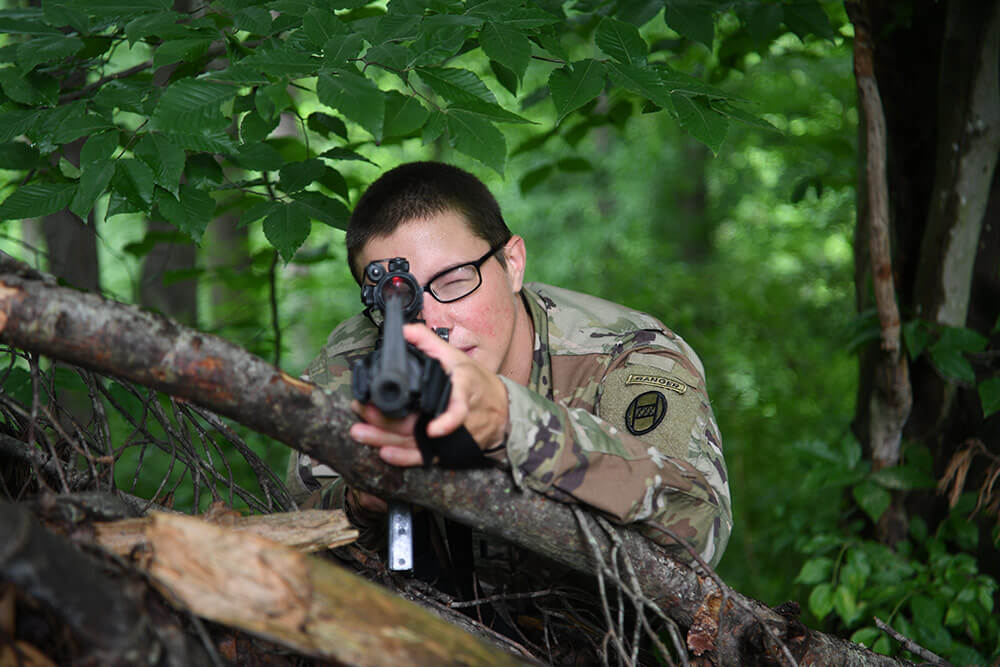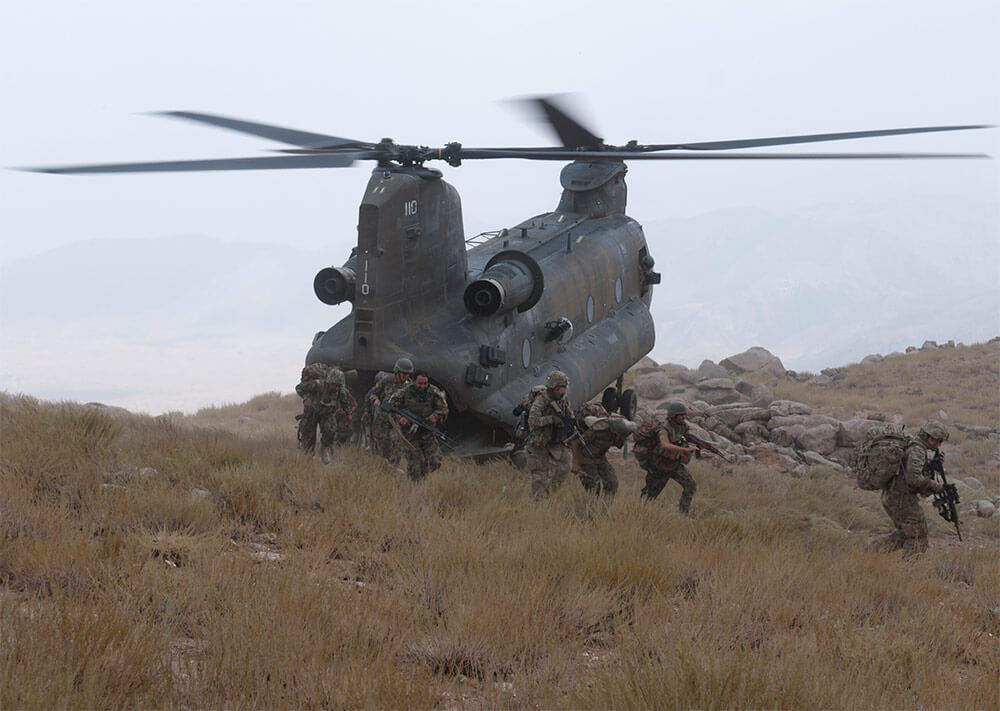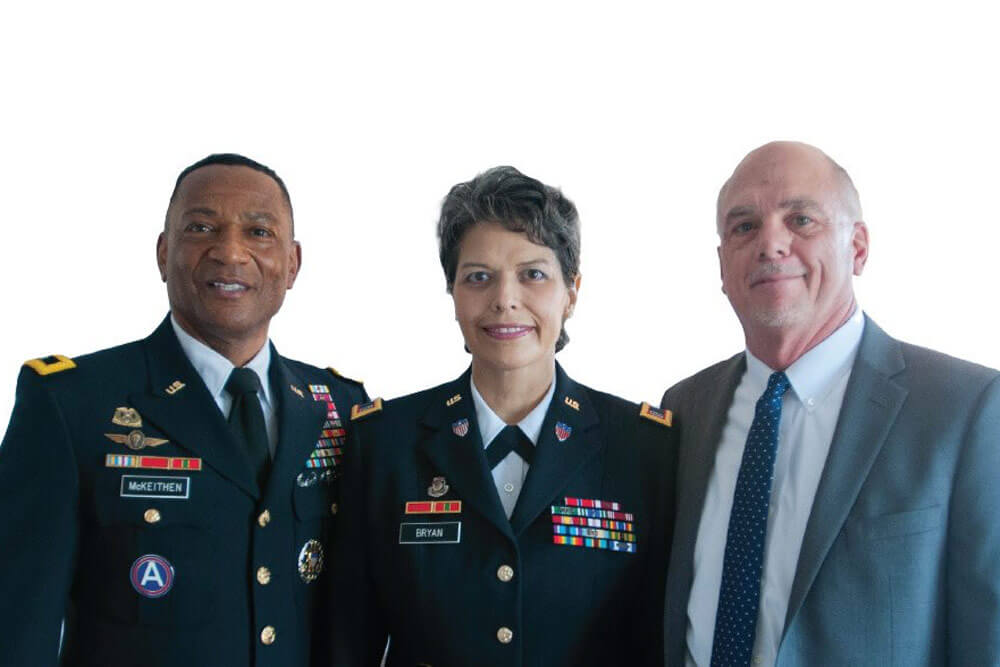VIRGIN ISLANDS and MICHIGAN National Guard Forge a Partnership to Last Decades
Hurricane Irma made landfall on the U.S. Virgin Islands on Sept. 6 of last year. Hurricane Maria made landfall less than two weeks later on Sept. 19. The unprecedented damage to the islands was catastrophic. Resource levels were low and the need for help was in high demand.
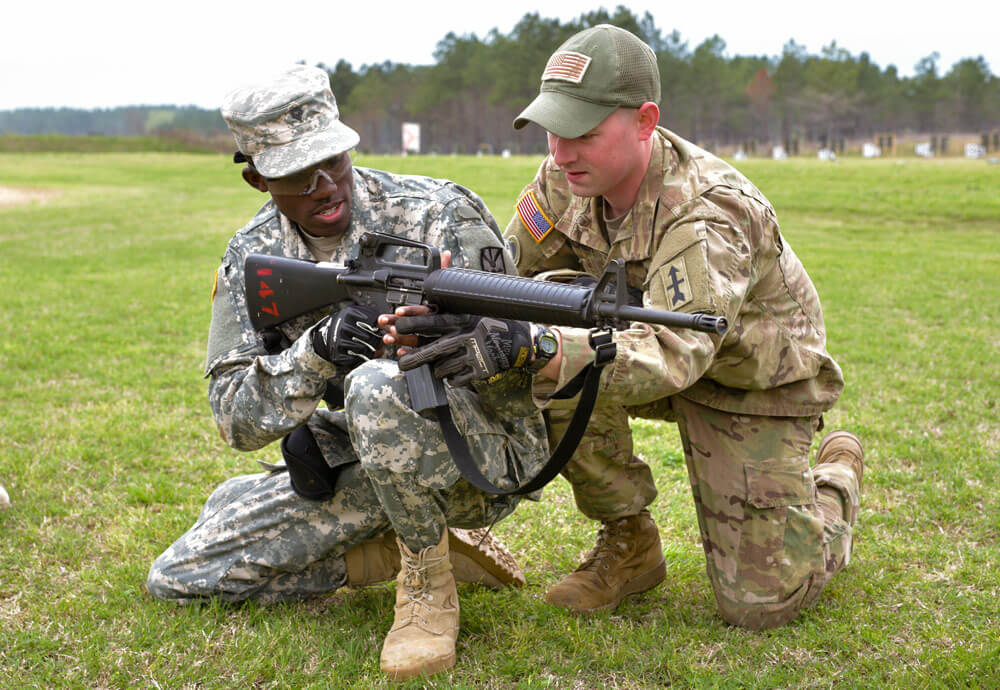
As the islanders began to rebuild and slowly work toward recovery, never far from the minds of the Territory’s leaders was the fact that the U.S. Virgin Islands could not sustain another natural disaster or emergency response. They needed a contingency plan.
The Adjutants General (TAG) from the U.S. Virgin Islands and Michigan have known each other for quite some time, explained COL Shawn Harris, chief of staff, HQ Virgin Islands National Guard. When it came to the attention of MG Gregory Vadnais, Michigan’s TAG, that the Virgin Islands was in need of help, he stepped forward as a senior leader. He wanted his State to be there in the Virgin Islands. The two generals had a conversation, and from that they began working to put everything together, said COL Harris.
What they put together was an interstate partnership known as an Emergency Management Assistance Compact (EMAC). The compact is a federally recognized mutual-aid agreement made among U.S. States and Territories. It enables them to share resources during natural and man-made disasters. Through the EMAC, Michigan has committed to extending indefinite support and assistance to the U.S. Virgin Islands.
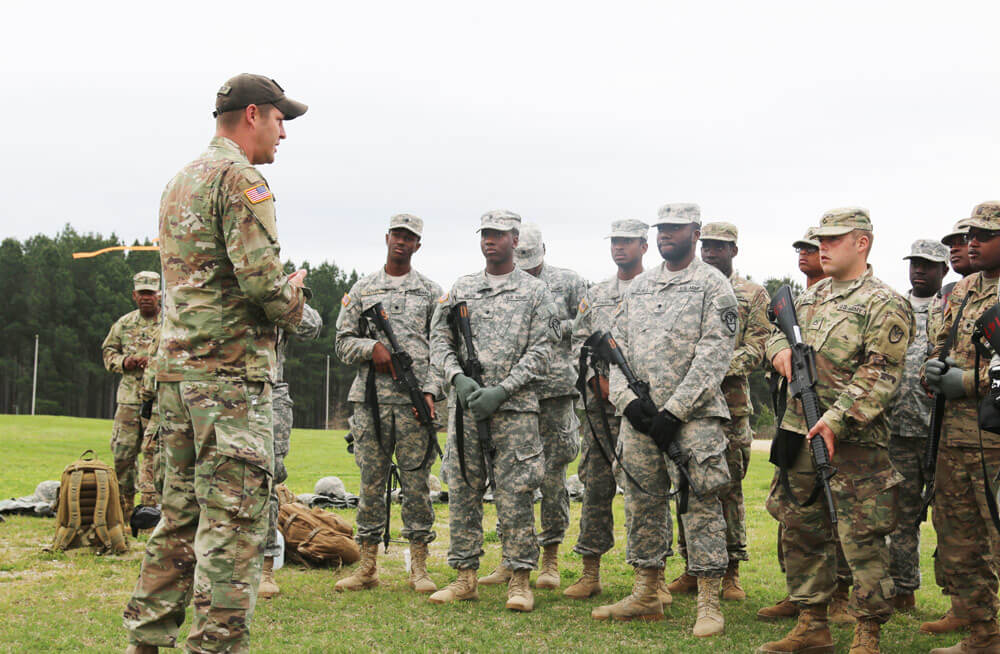
MG Vadnais spoke about the partnership, which he sees as a positive for Michigan as well as the Virgin Islands.
“As we help them, we will have the opportunity to validate our own plans and capabilities to support the citizens of Michigan should we be faced with similar challenges,” he said. “It is a win-win situation that strengthens the National Guard as a whole.”
While the federal government sent funds and support in the wake of last year’s hurricanes – 4.4 million meals, 2.9 million liters of water according to the Federal Emergency Management Agency, almost $36 million to fund 8,570 individual assistance applications and $7.3 million for public assistance grants – it is believed the new relationship with Michigan will allow for a more effective response to any emergency situation.
“We could not have imagined responding to two category 5 hurricanes within 12 days. We were overwhelmed, and this partnership provides some assurances that we can respond to our community’s immediate needs,” said BG Deborah Howell, adjutant general of the U.S. Virgin Islands.
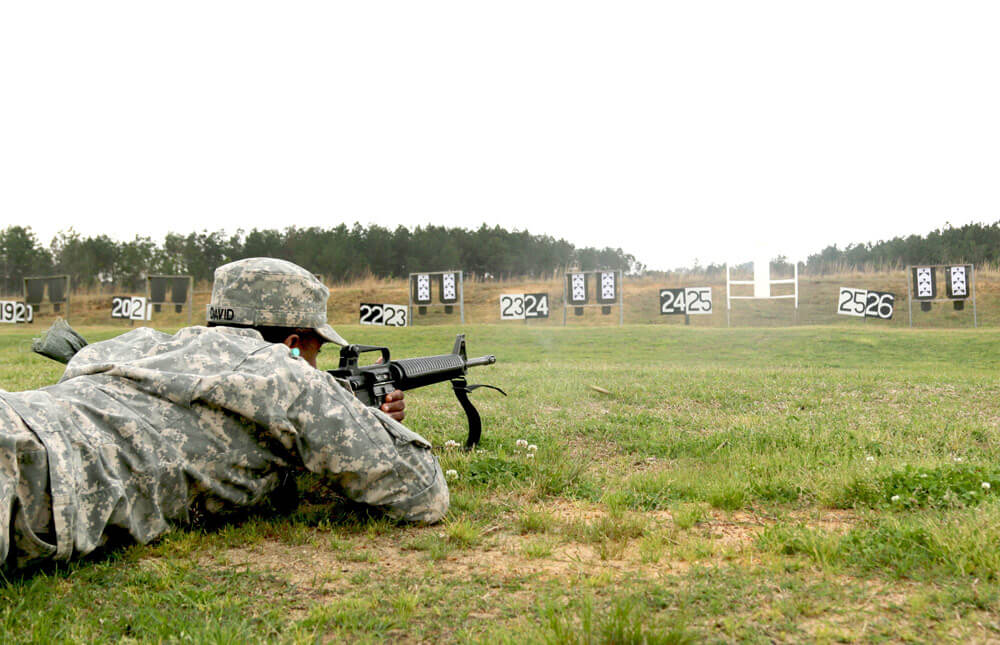
Soldiers of the U.S. Virgin Islands National Guard have worked tirelessly to restore residents’ property and lives to normal, though it’s been an uphill battle. Even months after the hurricanes, for the 670 Soldiers of the Virgin Islands Army National Guard, plenty of work still remains to be done. Hopefully, the partnership with Michigan will boost future capabilities. With a new hurricane season already inbound – hurricane season officially starts June 1 – those additional capabilities may be called on sooner rather than later.
MAJ Marsha Harvey and WO Adrian Ranszen, both of the U.S. Virgin Islands Army National Guard, have been working in the recovery effort since the summer of last year.
“It’s been busy,” said MAJ Harvey as she thought back over the past year. “We haven’t really gotten a break. The Soldiers – they’ve done a fantastic job.”
In an effort to provide the Virgin Islands’ Soldiers with the additional support that would allow them to enjoy a much needed break, the Territory has already begun working with Michigan to solidify the new partnership. The two Army National Guard groups conducted weapons training together this past April. Michigan offered the coaches and the U.S. Virgin Islands supplied the students.
WO Ranszen, along with 439 other U.S. Virgin Islands Soldiers, met their Michigan Guard trainers at Camp McCain in Grenada, Mississippi. Members of the Michigan Army National Guard also went to the Virgin Islands to conduct pre-marksmanship training roughly a month prior to the exercise at Camp McCain.
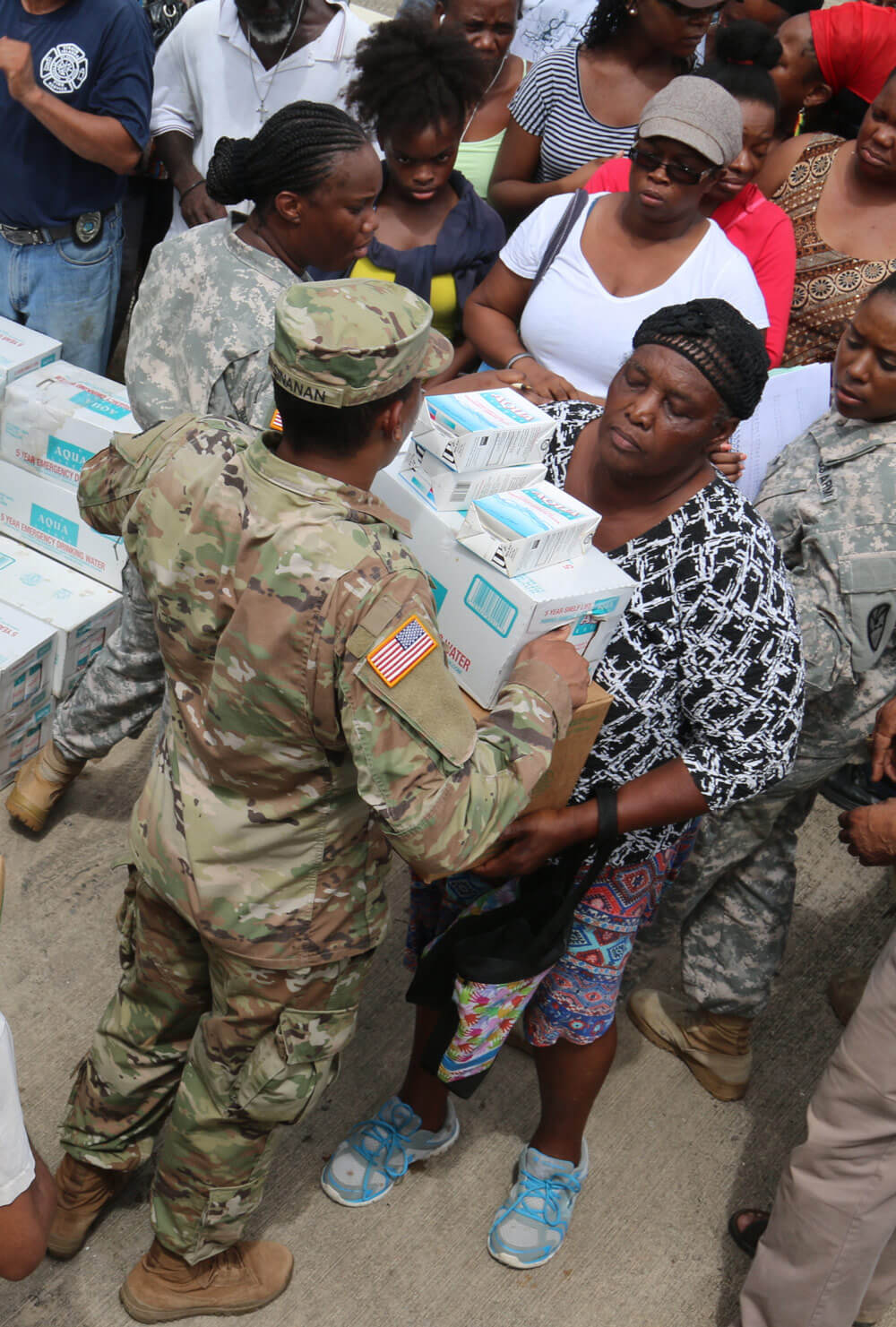
The OIC of the Michigan Guard Small Arms Training Section, 2LT Nikolas Discher, said he believes the exchange could improve readiness on both sides.
“Readiness is key, and I know we will learn from each other,” he said. “We can help them ensure proficiency in the basic Soldier tasks and help them to be ready for both domestic and combat missions. They have more experience in dealing with disaster, so they can help us by sharing the lessons they have learned.”
WO Ranszen was impressed with the caliber of Michigan’s trainers. He said the feedback from other Virgin Islands Soldiers has been positive and that, most importantly, their target scores were improving.
“The Michigan Soldiers who have come down – they’re really professional and have definitely shown us some methods and techniques that have improved the way we’ve been shooting,” he said.
The newly forged relationship is not only generating positive results at the leadership level, but COL Harris said he fully expects it to create connections between individual Soldiers on the ground level. Those men and women will get to know each other as units work together to meet new challenges.
“Soldiers will make new friends and those friends will probably talk to each other via phone and email,” said COL Harris. “At all different levels, we will have good communication and good experiences for both organizations and all individuals.”
Those involved can see the partnership already bearing fruit, and higher yields are expected. “The training opportunities derived by this partnership are invaluable,” noted BG Howell.
For now, most of the help is flowing from north to south, with Michigan supporting its fellow Soldiers in the Caribbean – though the assistance is by no means expected to be all one-way. As the partnership matures, the needs of the Michigan National Guard will be assessed and the Virgin Islands National Guard will step up to render aid.
One example of a current dual-aid opportunity concerns the Virgin Islands’ aviation unit.
“We haven’t [been qualified to run] our aircraft for the last two years,” said WO Ranszen. “Michigan is going to assist us in getting us back up and running again. Six Soldiers have been selected to go to Michigan for anywhere from three to five years to train and get our aviation program back on track. During those three to five years, we’re expected to be ready and available to assist while we’re in Michigan as part of the partnership.”
He said he can’t wait to get up in the air again, doing what the Army National Guard trained him to do.
Despite all the Soldiers of the Virgin Islands Guard have been through, they continue to exhibit exceptional resolve.
“These Soldiers had to watch their homes being destroyed. They have gone through so much struggling to rebuild their lives, but they still show up,” said 2LT Discher. “Their positive attitude is contagious. It’s good for our Michigan Soldiers to witness this kind of resiliency.”
Still dealing with the lingering effects of the devastation brought by the storms, resiliency is in fact key to these Soldiers’ survival.
“I had damage to my property. It was significant.” said MAJ Harvey. “If you fly over us right now, you still see some blue roofs. That’s just one of the things that reminds you of what we have gone through.”
She said some of her Soldiers completely lost their homes and are still living out of rental units. Yet, the Soldiers have come together like family to help not only the local citizens, but also their fellow Guard members as they deal with the aftermath of Irma and Maria.
“I sustained damage to one of my vehicles. I got water in my house. The majority of my stuff got moldy, but luckily I had insurance,” said WO Ranszen. “I only got power back in the beginning of January. September to January I was without power in my home.” WO Ranszen’s neighbors suffered even worse, as he said the roofs were torn off the majority of the houses around his.
Today, the citizens of the U.S. Virgin Islands are hoping the worst is behind them, and that the new hurricane season will not bring new catastrophic loss. If hurricanes do make landfall on America’s eastern-most Territory, citizens can be assured that local Guard units will be bolstered by their new northern partners. “I think the future is very bright,” said COL Harris. “This partnership will be for 20-plus years. Everyone is ready to do whatever the American people need them to go out and do.”
“The partnership is actually beautiful,” MAJ Harvey emphasized. “It’s something that we’re excited about.”
By STAFF WRITER Matthew Liptak
